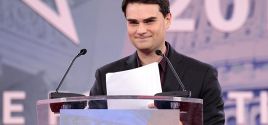Arms Dealer's Planes Flew U.S. Missions in IraqViktor Bout Was an International Fugitive at the Time His Planes Were Used by the U.S.By Justin Rood and Maddy Sauer ABC News Mar. 14, 2008 |
Popular 
As Poll Finds Ukrainians Want to End War, U.S. Pushes Zelensky to Bomb Russia and Expand Conscription

FBI Pays Visit to Pro-Palestine Journalist Alison Weir's Home

Schumer Moves to Silence Criticism of Israel as Hate Speech With 'Antisemitism Awareness Act'

Federal Judge Orders Hearing Into Questionable 'Auction' of Infowars to The Onion

'More Winning!' Ben Shapiro Celebrates Trump Assembling an Israel First Cabinet
 When U.S. officials announce the arrest of a notorious arms dealer and drug-runner this afternoon, the fact that his planes flew U.S. supply missions in Iraq will likely go unmentioned. In a January 2005 letter to Congress, then-Assistant Defense Secretary Paul Wolfowitz admitted the Defense Department "did conduct business with companies that, in turn, subcontracted work to second-tier providers who leased aircraft owned by companies associated with Mr. Bout." At the time, Bout was already a wanted international fugitive. Intelligence officials had considered Bout one of the greatest threats to U.S. interests, in the same league as al Qaeda kingpin Osama bin Laden. Interpol had issued a warrant for his arrest; the United Nations Security Council had restricted his travel. But that didn't stop U.S. government contractors from paying Bout-controlled firms roughly $60 million to fly supplies into Iraq in support of the U.S. war effort, according to a book released last year by two reporters who investigated Bout. And it didn't prevent the U.S. military from giving Bout's pilots millions of dollars in free airplane fuel while they were flying U.S. supply flights. From 2003 through at least 2005, Pentagon contractors used air cargo companies known to be connected to Bout to fly an estimated 1,000 supply trips into and out of Iraq, according to "Merchant of Death: Money, Guns, Plans, and the Man Who Makes War Possible" by Douglas Farah and Stephen Braun. A Pentagon spokesman confirmed to the authors that the military gave 500,000 gallons of fuel to Bout's pilots. In an interview Thursday, Farah said he understood Bout may have worked on behalf of the U.S. government as recently as last year. Recent intelligence has indicated Bout supplied armor-piercing missiles to Hezbollah in the summer of 2006 and arms to Somalian warlords which fueled a conflagration that December, Farah said. In a very rare public appearance, Bout was a guest on state-run Russian television last year where he vigorously defended himself against the criminal allegations. "Even with all power of American administration, CIA, FBI and all means like satellites and this, they not even able to come back with a certain proof so that I could answer," he said in choppy English. "Is very easy to blame somebody without coming with the proper documents, without coming with a proof of what they're trying to say or trying to blame." Bout also admitted he met with Mullah Omar in Afghanistan but denied that he ever did business with the Taliban. "I had no any relation with this kind of people. That's completely untrue," he said. Bout said the meeting with Omar was in regards to negotiating the release of his plane crew members that had been kidnapped by Taliban members. He referred to the allegations that he's involved in U.S. supply missions in Iraq as "very funny." While he denied trading arms, he did say that his planes might have carried weapons without his knowledge. "Let's then ask Moscow taxi drivers where they ever had transported criminals or somebody related to the criminal network," he said. "I'm transporter, what we did, we did." Bout's work in Iraq first became public in a May 2004 article in the Financial Times newspaper. CIA officials in Washington secretly warned colleagues in Baghdad of the ties in fall 2003, the authors report. "It would appear...that it did not make its way to the correct folks," the two writers quote an unnamed CIA official as saying. Bout didn't just walk away with millions of taxpayer dollars, Farah and Braun found. The military issued Bout's pilots supply cards allowing them to gas up their planes for free when landing in Iraq. A Defense Department spokesman confirmed to the authors that Bout's fleet were provided nearly 500,000 gallons of fuel from the Baghdad airport courtesy of the U.S. Air Force. Bout made his fortune in the 1990s selling Soviet-era weaponry to Third World despots and insurgent groups. Using a "veiled, complex corporate structure," Bout dispatched fleets of Cold War-era Soviet cargo planes to some of the most inhospitable corners of the earth, running guns for dictators, including Liberia's Charles Taylor and Zaire's Mubuto Sese Seko, as well as rebel leaders in Angola, Sierra Leone and beyond. By 2000, U.S. government officials considered him one of the leading threats to the United States, on par with Osama bin Laden and global warming. Bout was the inspiration for the 2005 film, "Lord of War," starring Nicolas Cage as an international arms dealer who will sell to all sides of any conflict. Bout reportedly rented his planes to the movie's producers for use in the film. Bout's net worth is not known, but it is reportedly "in the tens of millions of dollars." |



